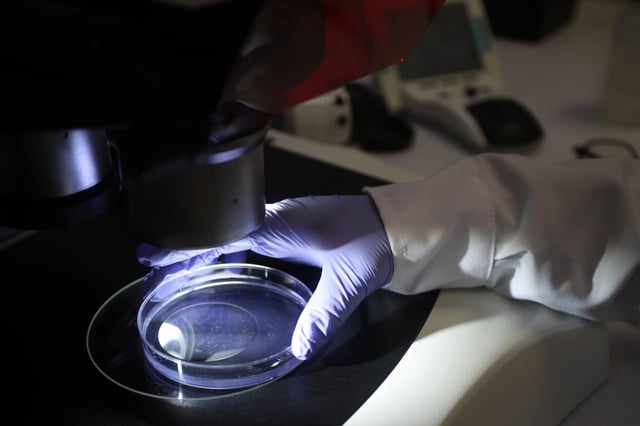Overview
- Researchers used an AI model called Evo, trained on roughly two million bacteriophage genomes, to generate complete genome designs for the minimal phage phiX174.
- Of 302 AI-proposed genomes that were chemically synthesized and introduced into E. coli, 16 produced functional bacteriophages that replicated and lysed bacteria.
- The team says human-infecting viruses were excluded from training data, as outside experts caution that applying similar methods to human pathogens poses serious dual-use risks.
- Scientists describe the result as a proof-of-concept that accelerates design, while noting major technical hurdles to scaling the approach to larger genomes or whole organisms.
- Potential uses discussed include faster phage therapy and agricultural applications, with growing industry interest in automated AI-run biology labs such as a $235 million raise by Lila.

